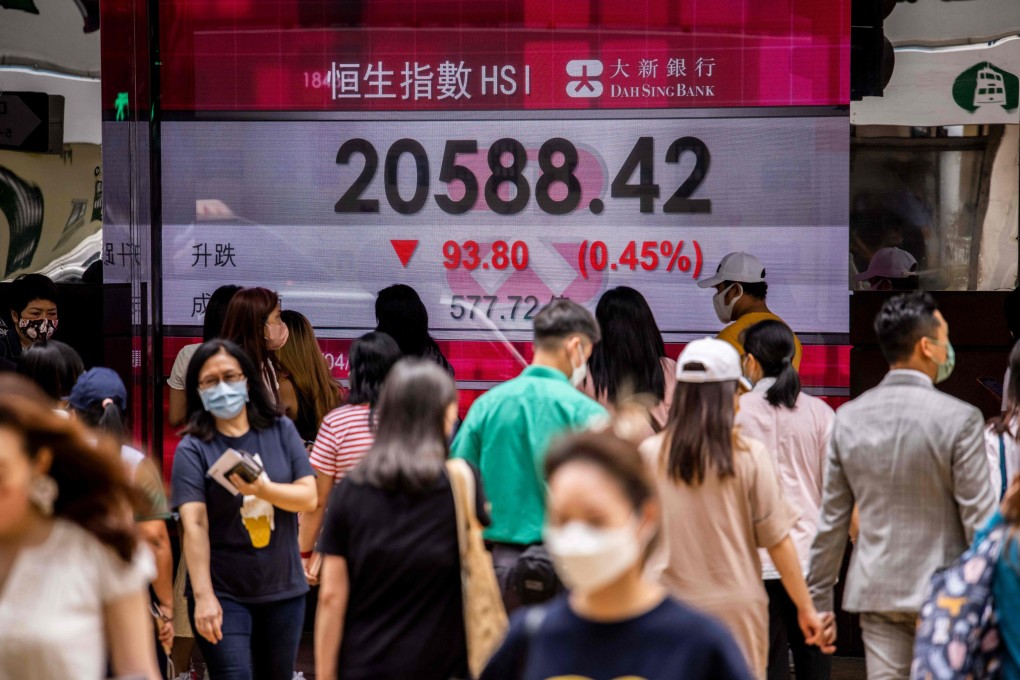Alibaba, Tencent drag Hong Kong stocks to weekly loss as China douses bullish easing bets while Zhihu slumps in debut
- China offered no respite for market bulls after the central bank withheld its easing firepower and President Xi downplayed Covid-19 impact on economy
- Zhihu lost more than one-fifth of its market value as US delisting pressure marred debut

The Hang Seng Index slipped 0.2 per cent to a five-week low of 20,638.52 at the close of Friday trading. The index fell every day this week, bringing the setback to 4.1 per cent. The Tech Index rose 0.3 per cent, while the Shanghai Composite Index gained 0.2 per cent in Friday trading.
Tencent declined 2.1 per cent to HK$340.60, while Alibaba Group Holding dropped 1.4 per cent to HK$86.65, pacing losses. Galaxy Entertainment and Ping An Insurance both weakened more than 1.9 per cent while PetroChina fell 0.8 per cent.
“Hong Kong stocks are just unattractive, no matter how you imagine it,” Stanley Chik, research director at Bright Smart Securities, said in a note on Friday. “China’s economic outlook has become uncertain.”
The 66 Hang Seng Index members have lost more than US$130 billion in market value this week and US$368 billion this year. Bullish investors soaking up Chinese stocks have yet to see any major economic stimulus, despite China’s pledge to support the economy and markets.
